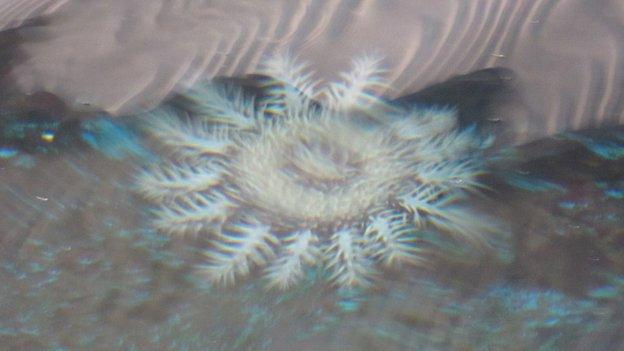In pictures: Australia's Great Barrier Reef
- Published
As Unesco considers if the Great Barrier Reef should be listed as "in danger", scientists are tapping into a record of the reef created by a huge photographic survey of this underworld wonder.
The XL Catlin Seaview Survey is an extensive scientific study that aims to carry out a rapid assessment of the current state of coral reef systems and to make the information publicly available for scientists around the world to use.
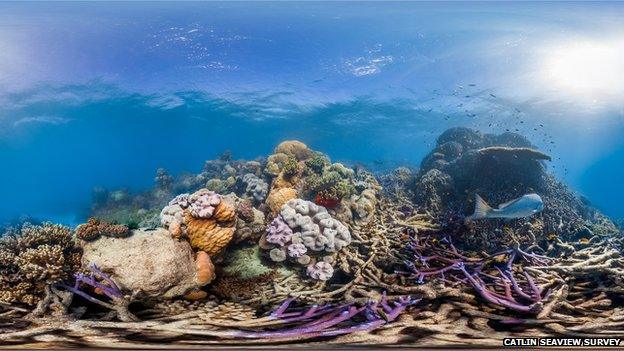
Developed and overseen by Professor Ove Hoegh-Guldberg, who is the director of the Global Change Institute at the University of Queensland, the survey has been independently reviewed by a panel of international experts.
According to the survey team, the world's reefs have lost 40% of their coral in the past 30 years and remain at risk from overdevelopment, pollution and climate change.
It is worse for the Great Barrier Reef. It has lost half of its coral cover in the same time, a 2012 study by the Australian Institute of Marine Sciences found.
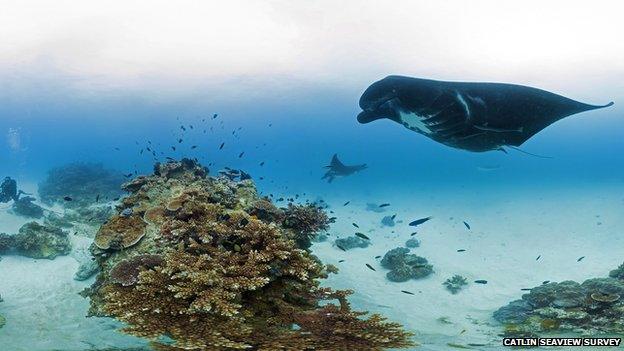
Unesco last year warned the Australian government that dredging of the seabed to create larger ports, along with other destructive forces, was putting the Great Barrier Reef at risk.
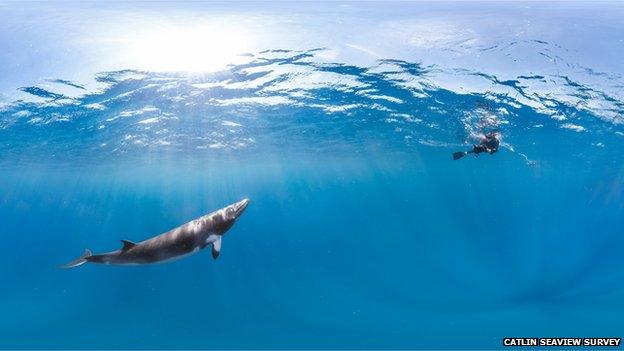
The XL Catlin Seaview Survey began in 2012, surveying 32 reefs along the entire length of the Great Barrier Reef and in the remote Coral Sea.
A total of 150km of reef was surveyed with special cameras. The images can be accessed online by scientists and the public.
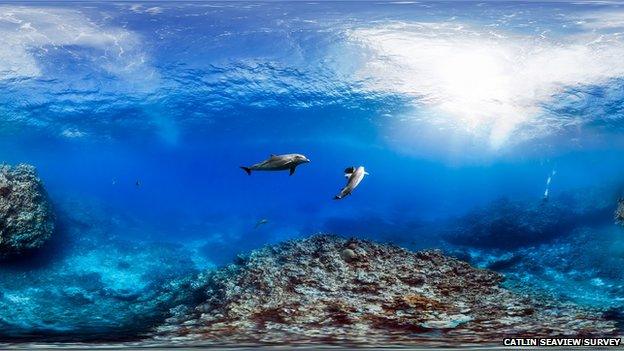
The study created a visual record of the shallow reefs but also investigated a large crop of coral 125m under water that had never been seen before.

Special cameras created 105,000 GPS-located, panoramic images for the survey.
But a lot of the Great Barrier Reef has never been explored.
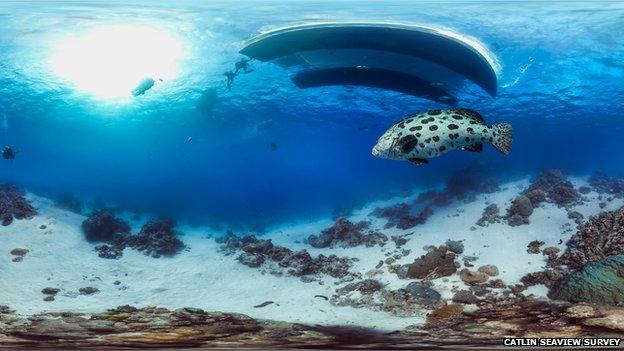
The survey is now being conducted in other oceans.
In 2013, the team surveyed the coral reefs of the Caribbean and Bermuda, before moving to the waters of South-East Asia last year.
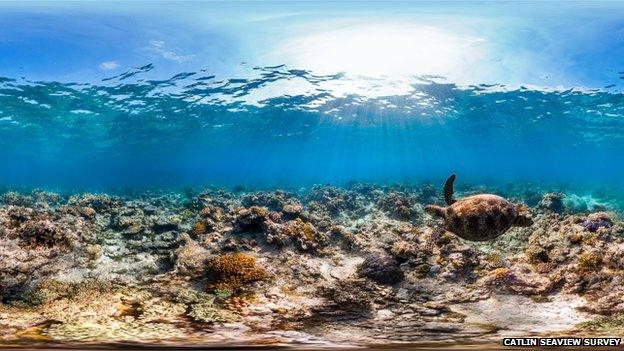
- Published29 May 2015
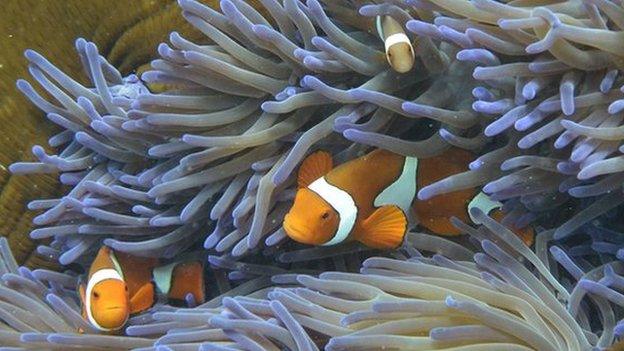
- Published29 May 2015
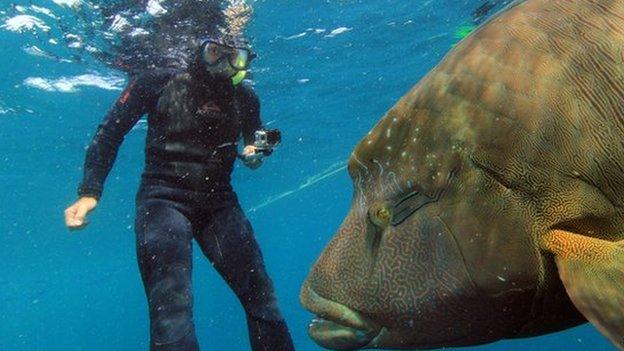
- Published19 June 2014
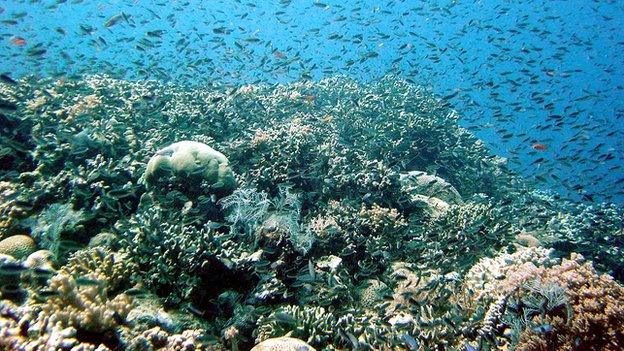
- Published30 October 2014
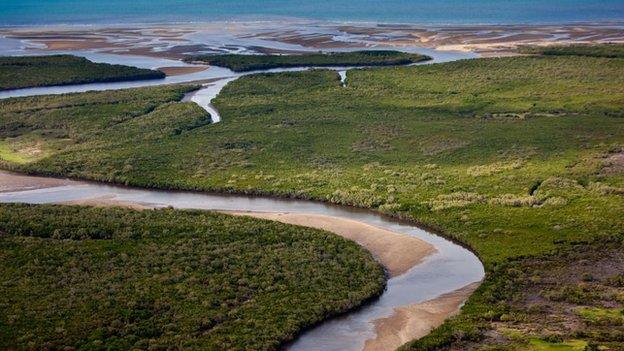
- Published16 February 2014
